Hi-Fi Rush - What is the phenomenon of success?
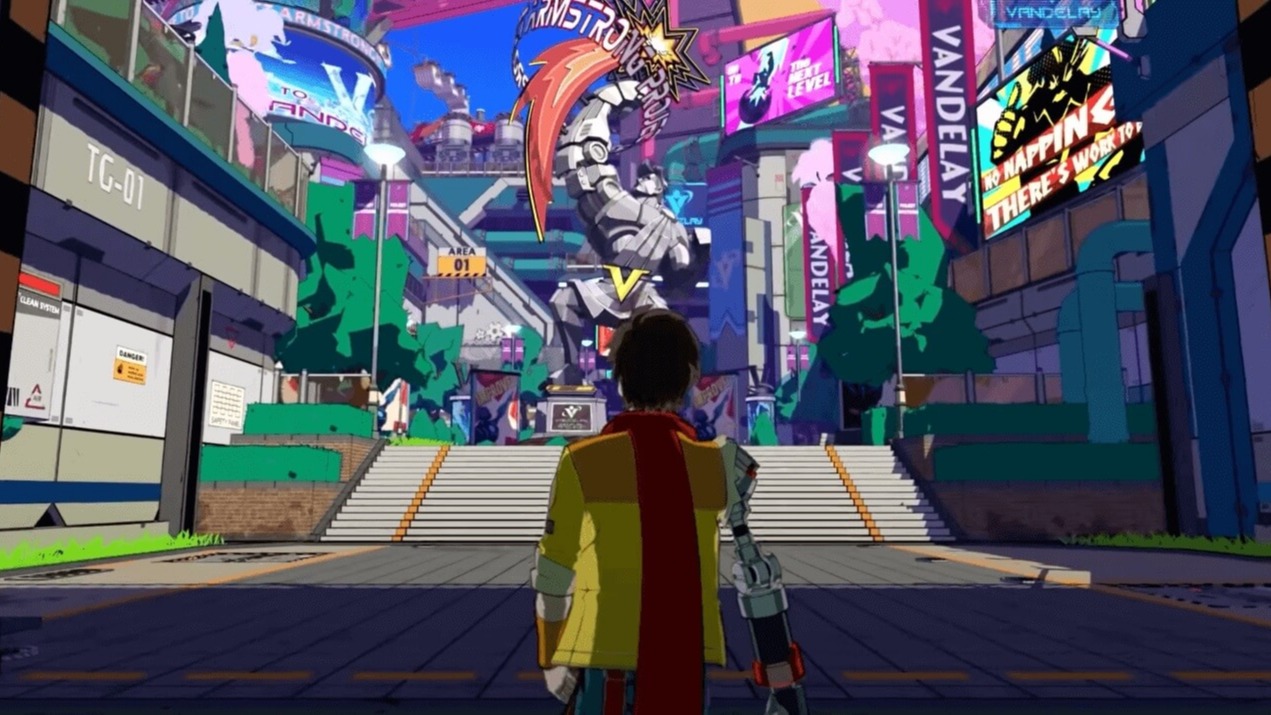
You've probably already heard about Hi-Fi Rush. Thousands of rave reviews, dozens of complimentary reviews... Hi-Fi Rush has even been given the status of "Game of the Year" in absentia, although it only came out in January, a lot can still change. Hi-Fi Rush is a game-building anomaly. What could you expect from Shinji Mikami, the father of Resident Evil, including the father of the legendary Resident Evil 4? And what could you expect from the creator of one of the best games in history in collaboration with developers Tango Gameworks, on whose account only The Evil Within, an attempt to repeat the success of one of the best games in history, is glimpsed in a positive light, and on the other side of the scale is the failed techno-demo Ghostwire: Tokyo. Ghostwire: Tokyo was developed solely for the capabilities of the PlayStation 5 controller, with no gameplay value, story, or even visuals.
Add to that the fact that Hi-Fi Rush was published by Bethesda Softworks - you get a thimble riddle... But unlike the manipulation of a thimble, in the case of Hi-Fi Rush the "ball" did not fall into the magician's sleeve, but into Steam and GamePass on the day of the announcement.
Hi-Fi RUSH | Official Launch Trailer
#1: Play the right sensitive strings and don't falsify
From the first minutes Hi-Fi Rush immediately makes it clear what the player will have to deal with. The protagonist of the game is a young, twenty-five-year-old guy named Chai - like a drink, only... and it's spelled the same way. Chai is a typical naive dreamer with a backpack: he daydreams in reality and in all seriousness believes that he will become a rock star in the future. Chai is extremely infantile, at times deafeningly stupid, but extremely ambitious, and his character is devoid of the ills of adulthood - Chai sees the world through rose-colored glasses. The world of Hi-Fi Rush is indeed colorful and utopian in many ways.
Chai has only one problem in life - an injured arm - but that's no problem, because the world of Hi-Fi Rush is a utopian cyberpunk. There is no class struggle, no decline of morals, no cataclysms, but there are corporations and robots.
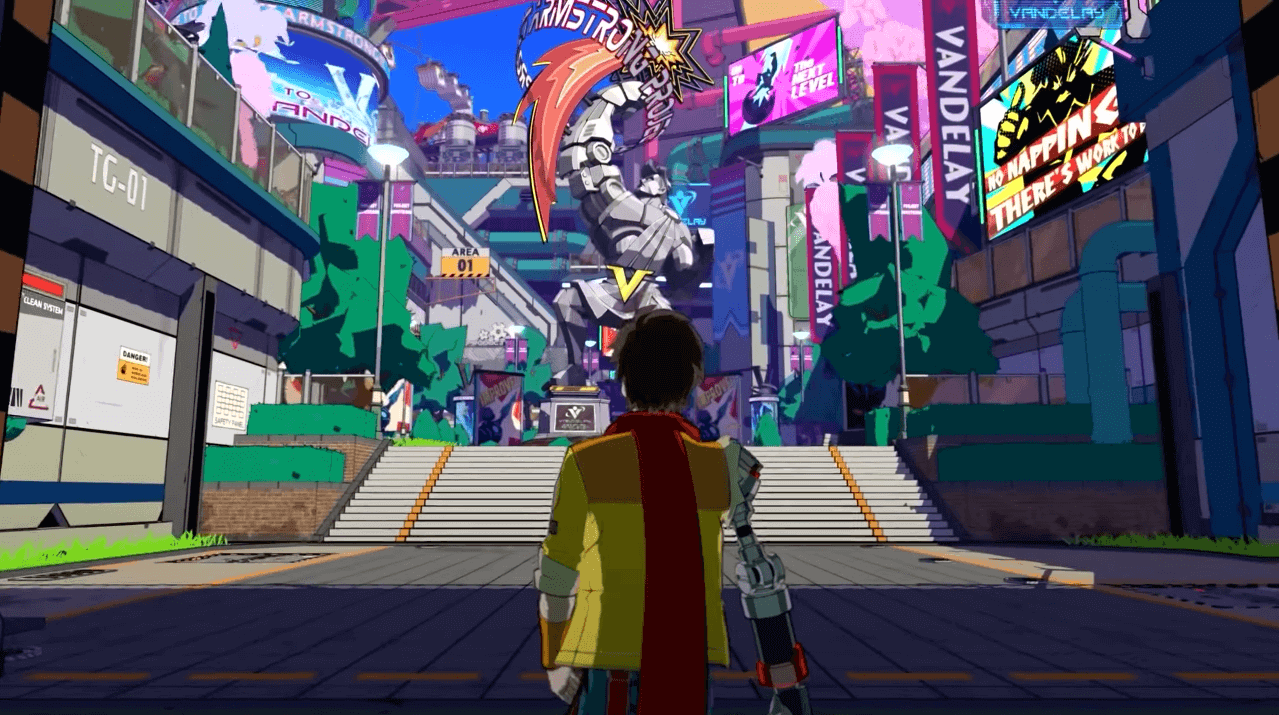
One of these corporations, Vandaley, is the one Chai turns to for help. "Vandaley has just started to replace limbs with robotic prostheses, so their services are free for the testing period. Of course, Chai sees no catch and decides to take the gamble. During the surgery, he is put into a uniform and shackled to avoid an accident...but the accident happens anyway. By a ridiculous accident before the surgery, his MP3 player falls on Tea's chest, the uniform falls and completes the surgery in a second. The MP3 player hits the guy in the chest, which was not part of the original plan.
If before the operation Chai never parted with the music, now the music does not part with Chai, the player works on the energy of the pulse and sets the guy's perception of the world.
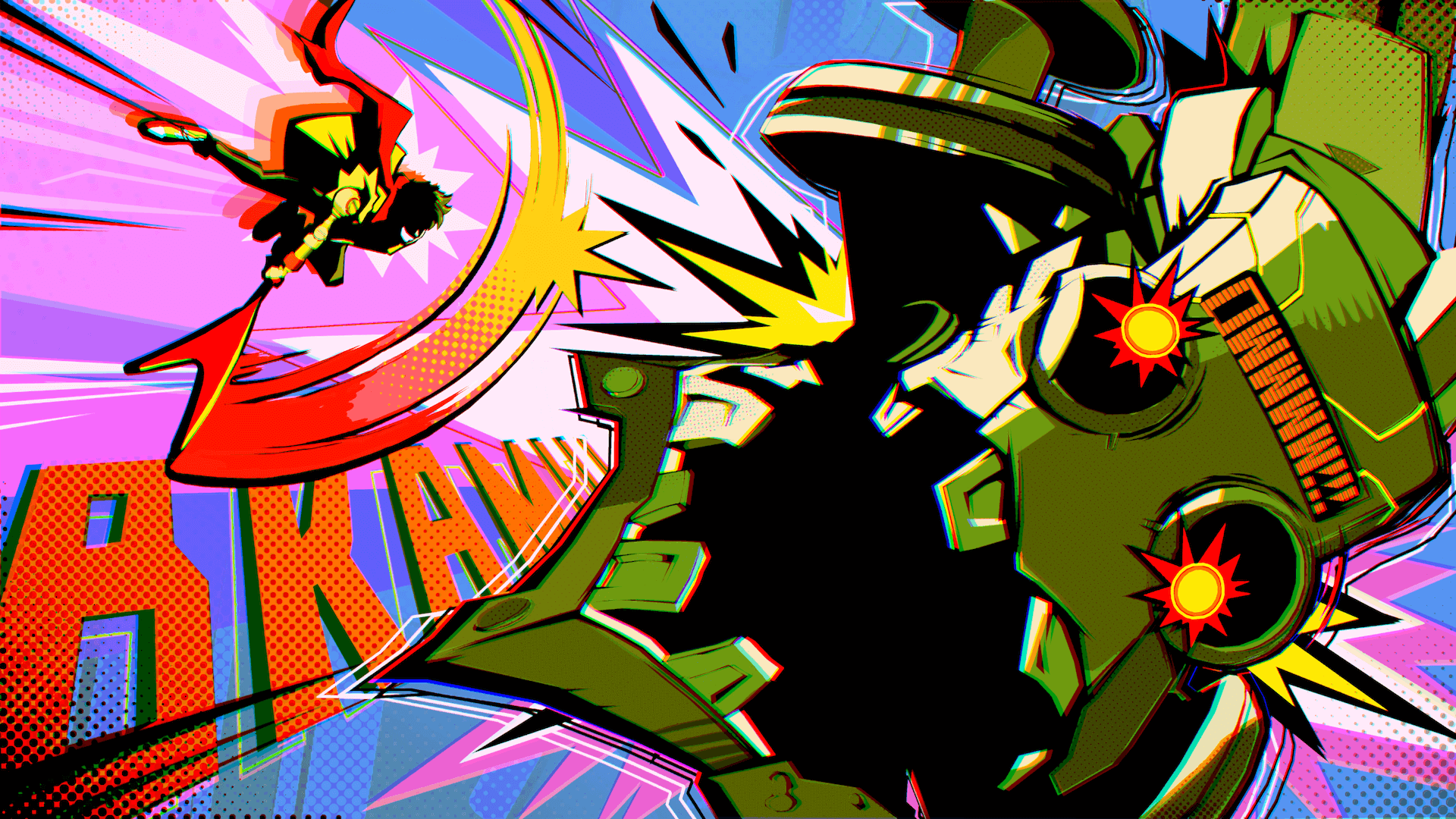
However, everything has its price. Vandaley's only mandatory requirement for its testers is: no defects. Reputation is paramount. "Vandaley is shown as a caricaturedly evil corporation: bureaucratic, not sparing its employees, greedy for money and power. Tea, on the other hand, has had the misfortune of being a living compromise of the corporation's inferior quality, unlucky enough to become an animated defect to be gotten rid of.
The plot, the tone, and the stylization all hark back to the cloudless days of Crash Bandicoot and similar games. The games where the player is not burdened with piles of mechanics and complicated philosophical themes - Hi-Fi Rush is easy to perceive. No drama, no politeness, no hidden truths - we have a Disney level scenario in front of us, or in the best traditions of Pixar. The plot is built to be understandable to any age group and anyone can find something for themselves. Let's say more: Hi-Fi Rush owes its success to the younger generation as well, as the game is absolutely ideologically sterile. Hi-Fi Rush promotes friendship, perseverance, that dreams are stronger than reality, that good always triumphs over evil.
No. 2: Give people what they want
The second secret ingredient is genius in simplicity. Hi-Fi Rush feels like an old guard game, Hi-Fi Rush is pure slasher at its best. There are no MMORPG elements, just a straightforward gradation of the player's skills to those of the protagonist. That is, it's not enough for you to find some uber-powerful weapon to get stronger; to get stronger, you just have to learn how to play. That said, Hi-Fi Rush doesn't dump a thousand and one abilities on the player's head, despite the fact that the game's root mechanics are complex.
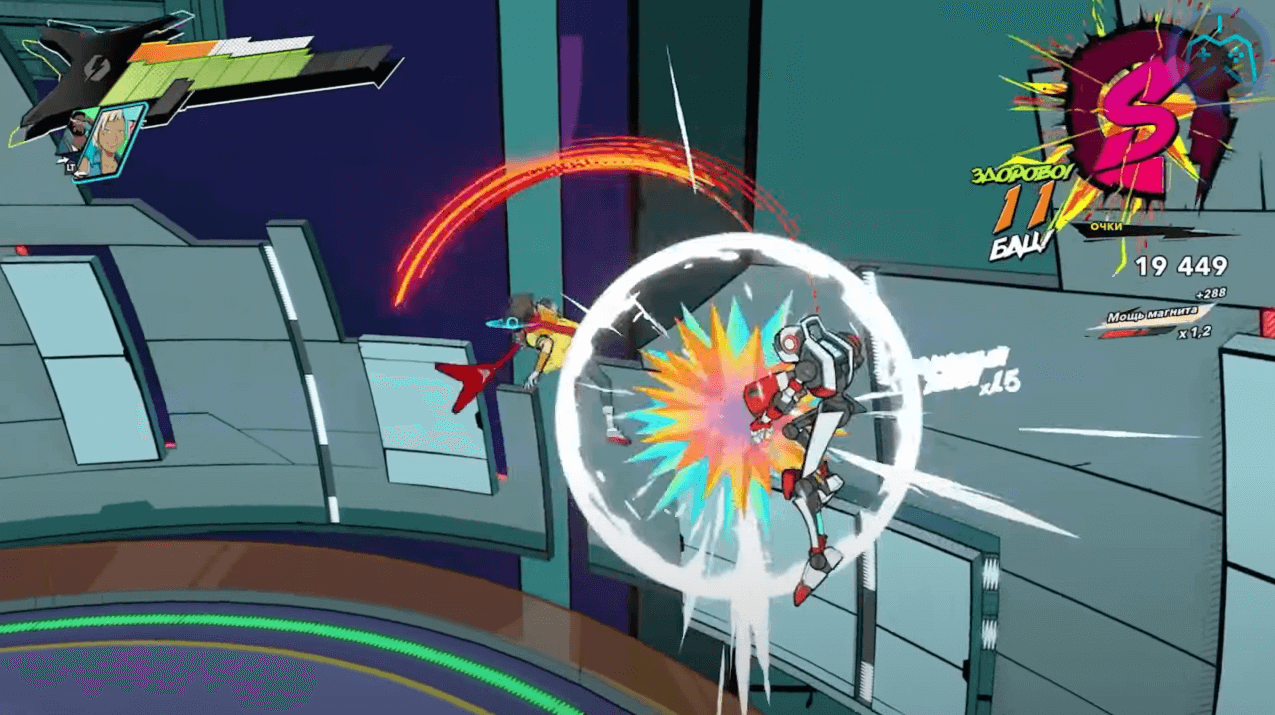
Like Devil May Cry, all the fun of Hi-Fi Rush is in knowing how to press the right buttons at the right time. And yes, Hi-Fi Rush is the kind of game that makes absolutely no sense to play without sound. Yes, you can include visual beat markers and even auto-tapping on the beat for those who don't pick up tunes by ear, but that's all wrong. Each level of Hi-Fi Rush is one song to which absolutely everything in this imaginary world obeys. Imagine walking down the street with headphones playing a musical motif, and the whole world around you strictly obeys the beat to the notes. Usually this happens in the imagination, Hi-Fi Rush is the visualization of this wacky fantasy.
...Now let's remember how slashers of the past looked like: the player scored points on a level, which he then spent to unlock combos. These combos originally looked simple: "X + X + X + X"; then slightly complicated: "X + Y + X + X"; to prepare the player for something a la: "RB + LB + X + X + A + Y", and then "R + L + X + X + Y". For the unprepared, these combos looked a little more complicated than Braille, but for the player the whole thrill was in the gradual curbing of this "piano". This way both the character and the player were pumped up in parallel, and there was no dissonance, where an experienced player had to pick a boss with a sword stump, and an inexperienced player killed a miniboss whose name he didn't even have time to read...
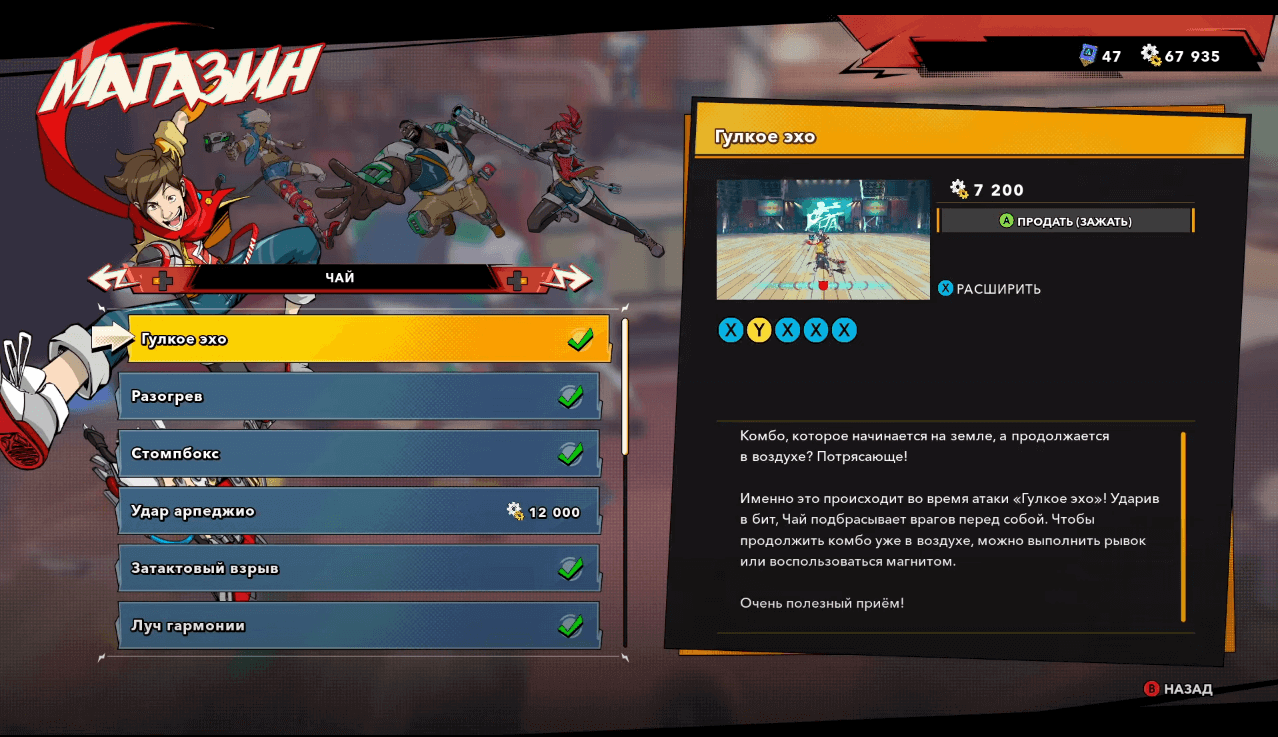
Another achievement of Hi-Fi Rush is the almost complete lack of repetitiveness. Neither tasks, nor locations, nor opponents are repeated. From the first seconds until the final credits, new content, new mechanics, and new tasks descend on the player. Even during the battles the enemies do not gradually come out of doorways or from the ground, but pile up in droves. This unconventional approach forces the player to combine attacks according to the situation and use all the offered functionality.
But the magic of Hi-Fi Rush is not even in the combat system, but in the fact that the player feels, rather than reproducing pre-prepared patterns. It is recommended to play on a gamepad, because only with it all the tactile sensations are revealed, only with a gamepad in hand the involvement in the process reaches an unprecedented level.

It is impossible to describe in words, but the synchronization of Hi-Fi Rush with the player reaches its maximum, if the player catches the rhythm of the game. Even the battles here are called Chorus for a reason. Often the developers tell the player the right way with clever visual manipulations, for example: if the player is walking along a corridor and sees a fork to the left and right, the right way will be emphasized by lights and guiding details a la wires. In Hi-Fi Rush, on the other hand, the world is imbued with cues: in the movements of the pistons, in the platforms, in the background - everything is subject to rhythm.
And don't let the word "platformer" confuse you. And here Tango Gameworks managed to achieve a balance: firstly, the platform hitboxes are big - the player doesn't risk falling down because he didn't jump to the right pixel; secondly, the learning of platforming is gradual.
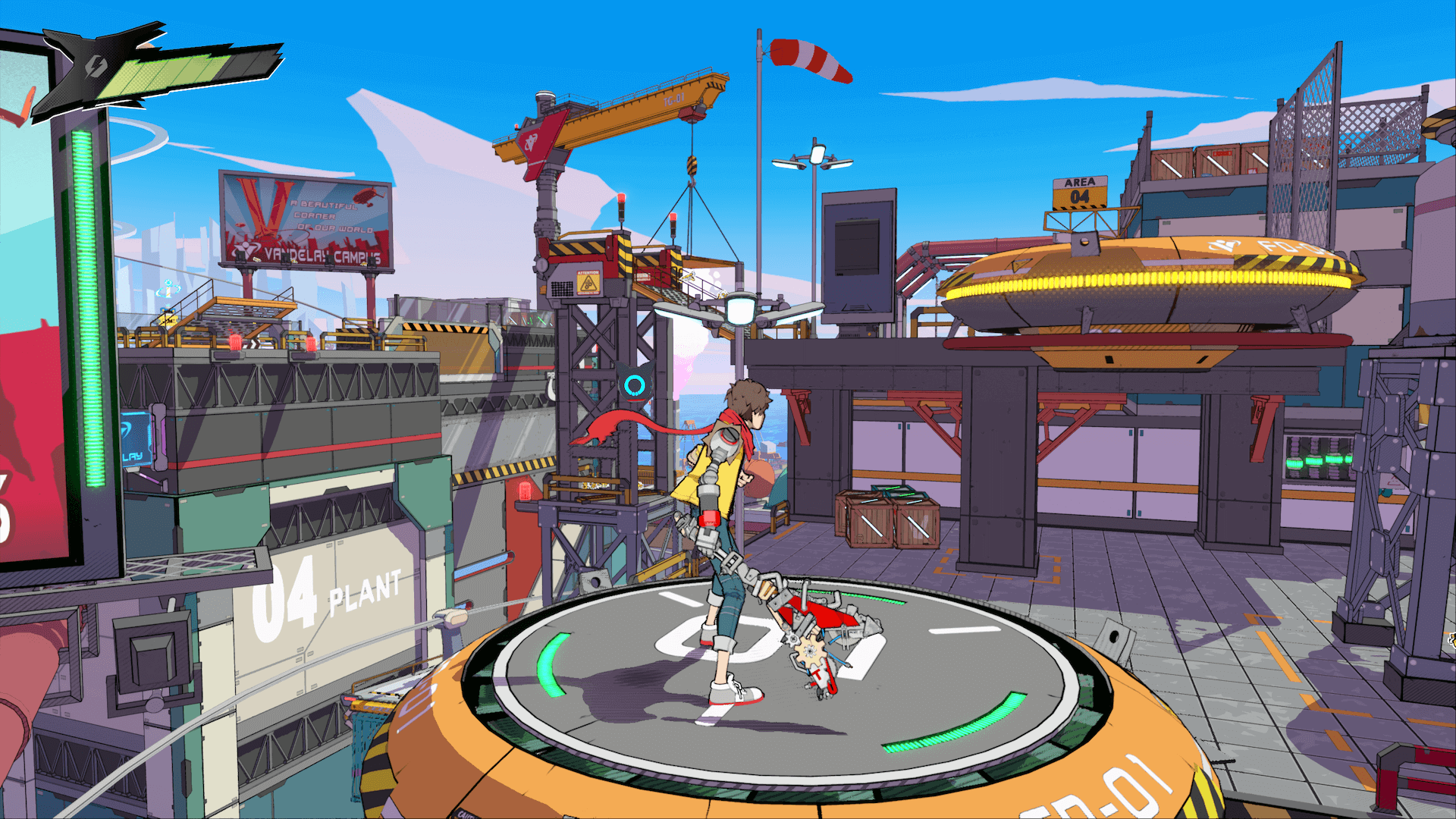
Near the middle of the game, the platforming becomes as much of a challenge as the fighting. However, even in platforming you can fully rely on sound. For example: if you need to skip between the lowering slabs, listen to the beat and understand that in a second there will be a drum gimbal kick. Of course, this level of synchronization can be achieved only with perfect game optimization...and here Tango Gameworks did their best.
Is it worth it?
Hi-Fi Rush is the star of GamePass, where the game looks like it fits. Not trying the game with this subscription would be a mistake. On the PC, however, the game's price tag is justified, but only for the amateur. Anyway, Hi-Fi Rush is too motley, naive and childish in some places, though the game is of high quality.
